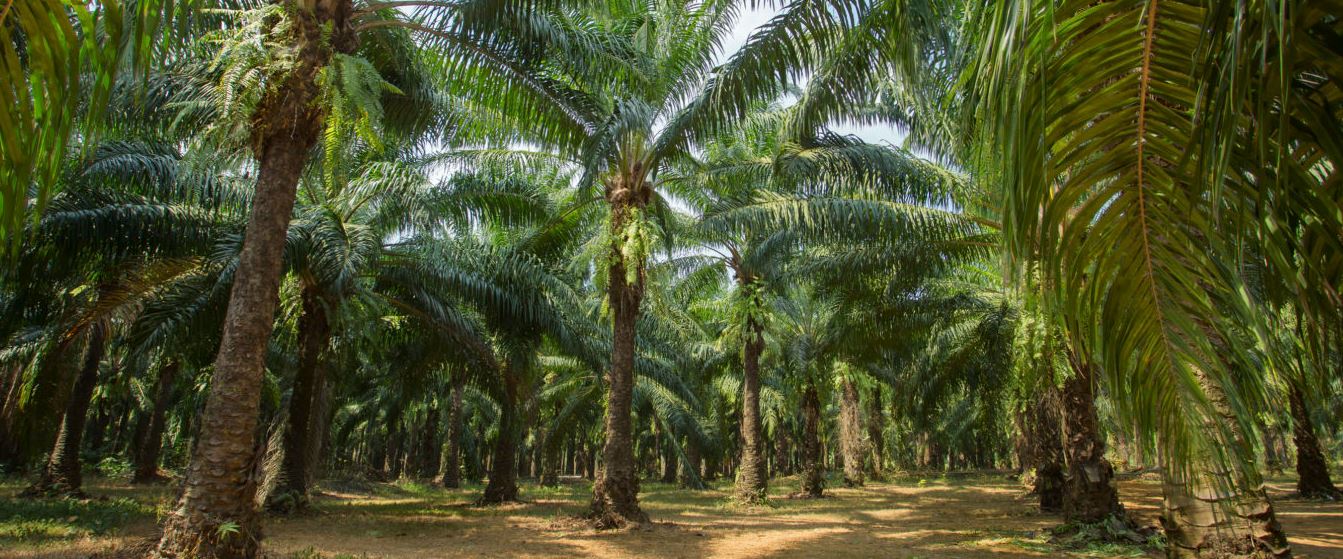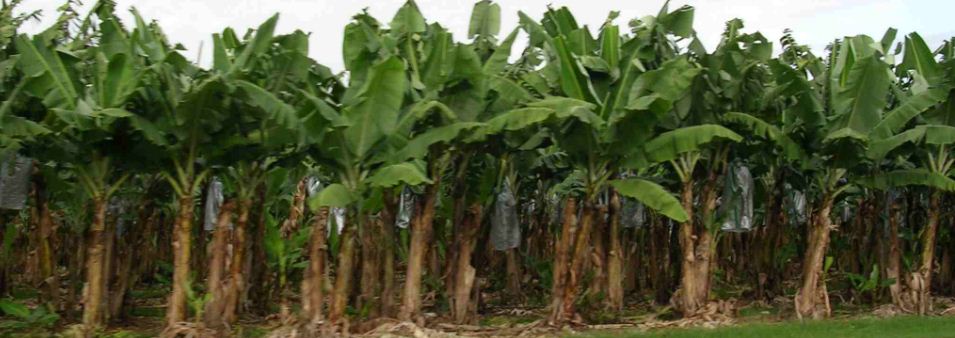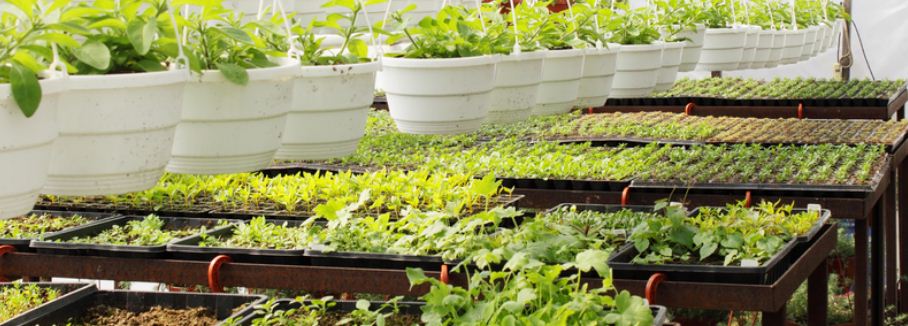24 Steps on How to Start a Profitable Palm Oil Production

Starting a business in the palm oil production industry can be incredibly profitable. The business world has begun to realize the idea and importance of investing in palm oil. Many individuals have decided to change their business practices and are promoting sustainable forestry practices now.
This guide is invaluable for starting a prosperous palm oil production business. Experience the process firsthand with our marketing department's detailed, up-to-the-minute guide. Learn about selecting a suitable palm oil variety and finding your suppliers and marketers to help make it big in a highly competitive market.
24 Steps on How to Start a Profitable Palm Oil Production Business
Palm oil is incredibly profitable and a great way to start a business. With the proper knowledge, skills, and experience in palm oil production, you could take home a substantial profit. With these 24 steps, you'll quickly start your lucrative palm oil production business.
Step 1: Conduct Market Research for Palm Oil Production Business
Market research is essential if businesses want to succeed in palm oil production. With market research, companies can understand the size of their potential market, customer preferences, and competition. By conducting thorough market research, businesses can make intelligent decisions to help them remain competitive and profitable in this rapidly-changing industry.
Step 2: Acquire The Necessary Equipment
Establishing a palm oil production company can be a complicated and expensive venture. It requires careful planning and considerable resources to get it running successfully. The right equipment, materials, and resources are needed to ensure successful operation.
From acquiring land for cultivation to obtaining the necessary processing machinery, there is much to consider when starting a palm oil production business. With the correct information and guidance, entrepreneurs can confidently move forward with their ventures and maximize their profitability.
The equipment needed for a palm oil production business may vary depending on the scale and complexity of the operation. However, some of the essential equipment required includes:
(a). Bunch Thresher:
Bunch Thresher is a revolutionary technology revolutionizing how palm oil plantations are managed. Utilizing mechanical harvesting reduces the need for chemical herbicides and pesticides while also reducing costs.
This method is more cost-effective and environmentally friendly than traditional methods, making it an ideal solution for sustainable palm oil production.
This machine uses a unique jet spray technology to kill weeds by spraying a concentrated water and pesticide solution.
(b). Sterilizer:
To ensure the highest quality in palm oil products, it is essential to use sterilizer equipment during the process. This equipment is designed to remove bacteria, fungi, and other microorganisms from the raw material before production.
The Sterilizer will help create a safer environment for your workers and guarantee that your final product meets necessary quality standards. It is an invaluable tool for any successful palm oil production business.
(c). Digester:
Investing in quality digester equipment is essential when starting a lucrative palm oil production business. It is a crucial tool that enables oil extraction from palm fruits and helps increase production efficiency.
Its advanced technology ensures you get the right quality oil with minimal effort and time. Investing in reliable digester equipment can help maximize profits while minimizing the labor costs associated with traditional methods.
(d). Screw Press:
Investing in a palm oil production business can be highly rewarding. The right screw press equipment is necessary to maximize your investment's returns. This will maximize your business profits and ensure smooth production.
Investing in a reliable screw press will ensure you can meet your production goals quickly and efficiently. With the correct type of screw press, you can produce high-quality palm oil promptly with minimal effort and cost.
(e). Clarifier:
The palm oil production business can be daunting, considering many factors. However, the right clarifier equipment can help make the process much easier.
Clarifiers are machines designed to remove suspended solids from liquid streams and are essential for producing high-quality, marketable palm oil free of contaminants. Investing in quality clarifier equipment will provide a strong foundation for success in your palm oil production business.
(f). Kernel Recovery System:
Starting a palm oil production industry requires the right equipment, including a kernel recovery system. This system helps to extract kernels, which are then processed into edible oil and other products.
Investing in a dependable kernel recovery system can significantly benefit your business. A Kernel Recovery Kernel recovery system will save you time and money as they get you back up and running quickly.
(g). Oil Storage Tank:
You can confidently start your lucrative palm oil production business with the right equipment. The suitable tanks can help maximize your business's efficiency and ensure your product's safety.
It's essential to consider multiple variables when purchasing tanks - capacity, material type, and durability. So it's vital to view them all before making your ultimate decision.
Step 3: Develop a Business Plan
A business plan is a roadmap outlining your business goals, strategies, and financial projections. It shows managers how the company will expand and helps them determine how to put their money into the project.
It will help you identify the resources needed, potential challenges, and opportunities. Presenting your idea to investors will take time and resources, so focus on the process upfront.
Step 4: Secure Funding
Palm oil production is a business that can be started and operated with low capital. It produces oils and other products used in various products such as cosmetics, food, detergents, and biofuel.
To begin operating this business, you must secure funding before starting production. As it turns out, the first step of any process for funding your business is being clear about your personal goals and how much money you need to achieve them.
Start by figuring out what type of investment you want to make, where your resources are coming from, and what activities will take place in the future.
Step 5: Select a Suitable Location
Palm oil is versatile, affordable, and good quality oil that can easily be substituted for many types of oils. Research has revealed that the production of palm oil can cut down on the amount of gases emitted during food production, thus helping to reduce greenhouse gas emissions.
However, producing palm oil has many environmental and social consequences, as it's usually grown in palm tree plantations, often located near forests and protected areas.
The location should also have a suitable climate and soil conditions to support the growth of palm trees. Think also about the availability of water and electricity, two necessities not readily accessible in certain regions.
Step 6: Hire Skilled Workers
Palm oil production is a primary global industry, but it can take time for palm oil producers to find the right workers. These factories often operate in remote locations and need experienced professionals who can operate sophisticated machinery.
Step 7: Obtain Permits and Licenses
It would help if you learned how to operate legally, which is a primary requirement. However, many resources can help you navigate the process.
These may vary depending on your location and the regulations in place. Some permits and licenses you may need include a food processing license, environmental permits, and business registration documents.
Step 8: Plant Your Palm Trees
Palm trees are a prevalent plant in the world of agriculture. The two most often planted palms in palm oil production are the African oil palm and the Malaysian palm, which produce high yields per acre.
Planting palms requires thought about the characteristics of the soil, how the weather will affect them, and what irrigation techniques will be best for their growth.
Knowing what kind of palm you have chosen before planting is essential, as some palms need more water than others or have different requirements for soil nutrient levels. Your decision can determine how strong, healthy, and prosperous your tree will be.
Step 9: Harvest and Process Your Palm Fruit
Palm trees have many benefits and can live for as long as 100 years. They can produce fruit throughout their lifespan, with harvesting beginning around 3-4 years after planting. They're a viable and sustainable crop because of that.
Once your palm trees reach maturity, which typically takes 3-4 years, you can begin harvesting and processing your palm fruit. This involves extracting the oil from the fruit through a milling process that leaves behind a dry red powdery product.
Step 10: Implement Quality Control Measures
Quality control is crucial in the palm oil production business. The palm oil industry is responsible for much of the deforestation in Indonesia and Malaysia, so each company should ensure they can produce a quality product.
Testing is a crucial part of the palm oil production process. You must implement measures to ensure the palm oil meets the required quality standards. This includes regular testing of the palm oil for purity, consistency, and freshness.
Step 11: Develop a Marketing Strategy
Palm oil is a commodity. It can be found in ice creams, baked goods, and cosmetics. This makes it easy for producers to get involved in the market by making palm oil-based products. Palm oil is also used as biofuel, cooking oil, and biodiesel, placing it in a high-demand industry.
This involves identifying your target market and promoting your products through social media, trade shows, and industry events. Building relationships with potential customers and suppliers would ensure a steady supply and demand for your products.
Step 12. Consider Sustainability
There is no denying that sustainability is of utmost importance in today's world. As the increasing demand for palm oil has grown, so have the negative environmental and wildlife impacts. We must adopt measures to guarantee the sustainable production of this commodity and safeguard our planet for future generations.
The inaction results will be extremely severe, so we must act now and make a difference. We cannot keep delaying; the consequences of inaction are just too harsh. Let's commit to action today! We can make a real difference and pave the way for future generations.
Step 13: Develop Strong Relationships with Suppliers and Buyers
Developing strong ties with vendors and customers is vital to success in the palm oil industry. Establishing those relationships guarantees your business's long-term stability & prosperity.
This can help you secure a steady supply of raw materials and ensure a market for your product. Consider attending industry conferences and networking events to meet potential partners.
Step 14: Monitor Your Finances
As the palm oil business has exploded in the past few decades, cash flow and earnings have become critical to success. Establishing a business cash flow using software and tracking expenses and revenue is vital. Consider hiring a financial consultant or financial analyst. With this knowledge, you can see how much profit your company makes and plan accordingly.
Step 17: Stay Compliant with Regulations
Palm oil is a versatile and sustainable vegetable oil produced for hundreds of years. As palm oil production is subject to various regulations, it's essential to stay informed on these regulations and ensure your business is compliant to avoid fines or the risk of being unable to market your product effectively.
Step 18: Be Flexible and Adaptable
Palm oil is a highly sought-after commodity that can be found everywhere, from food products to cosmetics and pharmaceuticals. The palm oil market is highly profitable and has been one of the significant contributors to the global economy for years. Palm oil production has a vast impact on the environment due to deforestation and biodiversity loss.
It is wise to be prepared to adapt your business model and operations as needed to respond to these changes. This may include diversifying your product offerings, exploring new markets, or implementing new technologies.
Step 19: Monitor and Manage Risk
Palm oil is a highly prized commodity in the food and cosmetic industries. It can be refined into various products that are used in everyday life, such as margarine, soap, shampoo, detergent, and more.
However, due to its high cost of production and its reliance on unreliable factors like weather and market fluctuations, palm oil is only sometimes a reliable source of revenue for businesses.
A risk management plan is essential to tackle any unforeseen circumstances that may arise and keep the business running smoothly.
This may involve diversifying your supply chain, maintaining adequate insurance coverage, and regularly reviewing and updating your risk management strategies. This will help minimize potential risks and ensure the business remains viable.
Step 20: Foster a Positive Company Culture
Palm oil production is a top essential industry in Indonesia. The sector faces the significant challenge of managing its supply chain, which handles the palm oil grown on its plantations.
This complicated process can lead to human rights violations, environmental damage, and social unrest. There are many ways to ensure palm oil production companies have a positive culture that helps them meet these challenges head-on.
Step 21: Embrace Technology
Technology can streamline operations, improve efficiency, and reduce costs. Consider investing in automation tools, data analytics software, and other technologies that can help you optimize your palm oil production processes.
Step 22: Stay Innovative
In today's marketplace, staying innovative and competitive is vital to success. From palm oil to e-commerce, the industry has experienced much-needed growth over the last few years. That is why keeping an eye on emerging trends and technologies is essential to stay ahead of the curve.
Companies can benefit from investing in research and development, testing innovative production techniques, and exploring exotic markets or product lines. Doing so could provide the competitive edge needed to stay ahead.
Step 23: Engage with Industry Associations and Organizations
Associations and organizations are essential for companies to stay up-to-date with the latest trends and regulatory changes in their industry. Associations, like the International Palm Oil Association (IPOA), can offer information on current issues that are important to understand before deciding on what to do.
Consider joining relevant associations or organizations such as the Roundtable on Sustainable Palm Oil (RSPO), the Sustainable Palm Oil Transparency Toolkit (SPOTT), or the Palm Oil Innovation Group (POIG).
Participating in these groups can provide valuable networking opportunities, access to industry experts, and resources for improving sustainability and responsible practices.
Step 24: Encourage Employee Training and Development
Palm oil production is a growing industry estimated to be worth $1.6 trillion, but it has received harsh criticism for its environmental and social impact. However, it is possible to use this industry to low down greenhouse gas emissions, improve food security in developing countries, and encourage employee training and development.
Think of offering training programs or professional development opportunities related to sustainability and responsible practices, such as courses on renewable energy or waste reduction. This can benefit your business and contribute to the broader sustainable development goal.
In conclusion, Palm oil production is a widespread and expansive industry, and it can be profitable for companies or individuals who take the time to learn about the market. However, many factors must be considered before starting a palm oil production business.
These include working within local regulations, staying in compliance with international guidelines, managing health risks from pollution, and maintaining self-sufficiency in operations.




